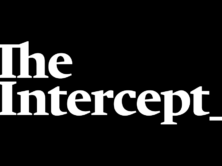(Credit: Washington News Council, screenshot)
Did the Seattle Times libel a Washington (state) psychologist with its reporting series on Sexual Violent Predators (SVP), “Price of Protection“? The series, by Times reporter Christine Willmsen, focused on “Washington’s civil-commitment program for sexual predators,” and included news and video reports.
Psychologist Dr. Richard Wollert complained to the Washington News Council over the series, which he said libeled him and his “professional standing and accomplishments and work in that system.” In the summary of his complaint, posted on the news council’s website, Wollert said his business has taken a hit. “The number of inquiries I have received about working on SVP cases in Washington has declined greatly since the publication of the POP series,” he wrote.
Further, in Wollert’s March 23 detailed and lengthy complaint letter to the council, he claimed the Seattle Times “violated basic journalistic norms of fairness, accuracy, and balance in reporting on its major subject, the State of Washington’s civil confinement system for” sexual violent predators.
According to a “media advisory” sent to iMediaEthics by the Washington News Council, the Seattle Times’ reporting claimed the Washington program was “plagued by runaway legal costs, lack of financial oversight and layers of secrecy.” The advisory noted that the Times posted “one correction/clarification” earlier this year on its reporting on the program. According to the news council’s John Hamer, the March 22 correction “was NOT the result of our involvement” as the council “didn’t receive Wollert’s complaint until March 27.”
Check out the full complaint on the news council’s website. Wollert’s complaint will be discussed at a public hearing June 1 at Seattle’s Town Hall. The hearing will be aired live by Seattle TV’s TVW June 1 beginning at 9 a.m. PDT, and a video will be uploaded to the council’s website “early next week,” Hamer told iMediaEthics, adding that “as far as I know,” it’s the first time that “a news council anywhere in the world has ever webcast a hearing” and had online voting.
The council also created a 12-question “public ballot,” available on its website and distributed to hearing attendees asking visitors to judge Wollert’s complaint and the Times‘ defense. In an email to iMediaEthics, Hamer noted that “we urge them to watch the hearing before voting, but we have no way to guarantee that.” Online voters must provide “a real name, email address and affiliation” so the council can “do our absolute best to filter out any phony votes, or to watch for either sides trying to ‘pack the house’ or ‘stuff the ballot box.'”
Hamer reminded that the online and in-person votes don’t have any “legal weight or sanctioning power” but really serve as “an expression of public opinion by a group of people who care about the news media.”
The Seattle Times’ Vice President of Public Affairs, Jill Mackie told iMediaEthics earlier this month that the newspaper thinks Wollert’s complaint to the news council is “unfounded and we stand behind the reporting in the story.” Mackie said the Times won’t be attending the hearing and that it “has advised the Council that no one from our organization will be present, but that a letter will be sent to be read into the proceedings.” Hamer confirmed this to iMediaEthics but noted he hasn’t received the letter as of 1:50 p.m. EST.
“We are hoping they will send a reporter to cover the hearing, as they did the last time we had a complaint against them in 2001,” Hamer added.
Mackie also provided iMediaEthics with the Times‘ “initial response” to Wollert’s complaint, dated April 12 and signed by The Times’ executive editor and senior vice president David Boardman. In that letter, the Times said that it found “nothing in it that alters the position we have expressed to you repeatedly over the past 14 months.” Further, The Seattle Times defended its reporting in question as “both fair and accurate.”
According to the Times’ letter, the newspaper “spent many hours over the past year” including “in meetings with our respective attorneys” discussing Wollert’s complaints. Further, the newspaper noted that Wollert “declined” the Times’ offer to add a link to his C.V.
The Times went on to claim all of Wollert’s complaints have been discussed and that the newspaper doesn’t see any “benefit in rehashing these points yet again, an effort that would surely take away from our ability to fulfill our public obligation to report the news.”
iMediaEthics has written before about the Washington News Council’s role as the last news council in the U.S. Last year, we reported on an invasion of privacy complaint against Seattle’s KIRO-7 News.
UPDATE: fixed timestamp






